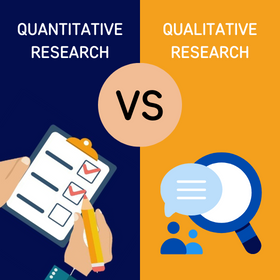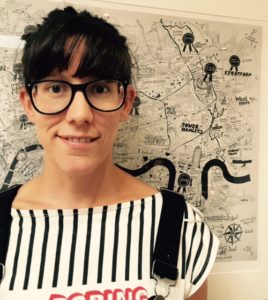Research in dementia is developing at a great pace. The race for a ‘cure’ may not be as close as we wish but there is so much more of a focus on developing what we can do to care and support people living with this diagnosis. Incidentally this aligns with a greater focus on, and acceptance of, qualitative research methods as a worthy and rigorous approach worthy of the attention and funding from the greater and more financially generous organisations.
Please don’t misunderstand me, I believe qualitative research approaches have been a great and worthy endeavour since the dawn of time. I am also aware that there have been some large and incredibly well-respected universities who, with Professors of great esteem have accrued large and important funding to do this work. But as a health care professional I am also incredibly aware that much of the service funding within our health and social care systems is based on research evidence using predominantly quantitative approaches. Yet I know there are lots of people who feel strongly, like me, that qualitative research methods, such as Conversation Analysis could do lots that quantitative methods cannot do for the people we work with (What do you think? This video may help [1]).
Thus, I sometimes feel like a secret agent in a peculiar spy novel that features all the researchers from more quantitative bio-medical or neuroscience backgrounds and me as the qualitative researcher. I lead a double, some might say triple life, at work. I am from a small clinical discipline; speech and language therapy, working in a dementia clinic with lots of doctors who diagnose and prescribe. I also work across two university departments, the one that employs me directly is small and populated by academics interested in developing interventions for people with speech, language and communication disorders, many of whom use qualitative methods. And within the department I co-ordinate the Conversation Analysis module. The research department I am often a guest in is led by the clinical academic neurologists from my clinical world, who generally focus on dementia- behaviour, diagnosis and genetics, and generally use quantitative approaches to do so. Now, I see Conversation Analysis as a tool that can enhance all the work I do across these departments, and I know that if I can convince the neurologists then this could have an even greater impact.

Take for example a recent case; that of a person with a Posterior Cortical Atrophy [2], or PCA. PCA is an atypical Alzheimer’s variant that results in people experiencing visual-perceptual impairments as the leading symptoms. As the disease progresses however, they may experience language impairments, such as word finding difficulties. In our discussions about this person, we identified that despite these word finding difficulties being relatively mild on assessment, the reported impact was significant for the individual. Having video recorded an example of a conversation the person had with their partner we saw why. Conversation Analysis demonstrated that the pauses between turns were hugely protracted, and that the person was missing many conversational cues being offered by their partner. This meant the person with PCA was no longer participating in the conversation. The neurologist saw this as a great insight, an impactful and important finding, and given the overwhelmingly positive outcomes from the consequent speech and language therapy, an great illustration of how to successfully support a person with PCA. So much so, that we have submitted this case as an article to a peer reviewed neurology journal, to spread the word.
So, I ask myself, what mission can I embark on next, to really infiltrate the mainstream dementia research field. To ingratiate Conversation Analysis with these important people, who can really influence the scope of research and care for people with dementia. Ill keep you in the loop in the next blog in my secret agent series.
Author [3]
[3]
Dr Anna Volkmer [4] is a Speech and Language Therapist and researcher in Language and Cognition, Department of Psychology and Language Sciences, University College London. Anna is researching Speech and language therapy interventions in language led dementia and was once voted scariest speech and language therapist (even her children agree).